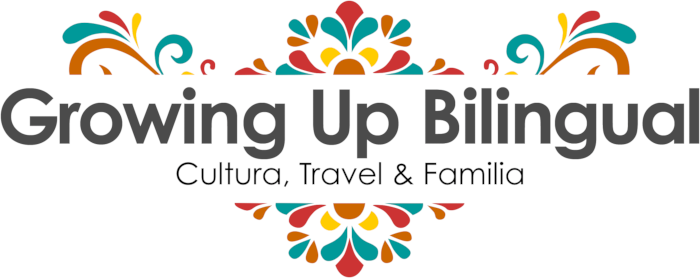Resources, Articles and Videos About Bilingualism and Children with Disabilities
- Great Article from the Hanen Center: Can children with language impairments learn two languages? by Lauren Lowry, a Certified Speech-Language Pathologist. We actually used the Hanen program with my daughter and it helped us find ways to support her and increase her language skills. The results where truly amazing and we did it in both languages.
- Raining Bird research by Dr. Elizabeth Kay: Children with Down syndrome can become multilingual where she finds that children with Down syndrome do very well in acquiring two languages.
- Article from Early Intervention Support that provides practical ideas for parents of children with Special Needs who are learning two language: Parenting Tips for Special Needs Children Learning Two Languages
- My own article about our experience with my daughter who has Autism and significative language impairments: Autism and Bilingualism: Our Family’s Journey. In it I describe why I believe that being bilingual has been immensely beneficial for her to the point of improving her language skills.
- Great article in SpanglishBaby by my friend Eliana Tardio How to Raise Bilingual Kids With Special Needs where you can read a mom’s experience raising two children who have Down Syndrome: both of them are bilingual.
- An article I wrote for Plaza Familia about the potential benefits of bilingualism for children with disabilities: Speech Delay and Learning Two Languages; Why It’s A Good Idea.
- The article One Language or Two: The Bilingual Quandry in Autism or Is it?
by Landria Seal, a speech language pathologist, tells parents what they can do when a therapist recommends that the family choose only one language to speak to the child with ASD. - The Simmons Foundation Autism Research Initiative’s article Cognition and behavior: Bilingualism doesn’t hinder language describes two different studies. Both studies where done in 2011 and both conclude that “bilingualism is not harmful to children with autism, and that clinicians should not advise bilingual parents to teach their children with autism only one language.”
- Another article from the Simmons Foundation Autism Research: Cognition and behavior: Bilingualism aids people with autism which supports my own findings at home!
- This article in MultilingualMania : Autism and Multilingualism: A Parent’s Perspective gives us a look into a trilingual family’s experiences.
- Video from LinguaHealth with Dr. Brenda Gorman a Speech Language Pathologist. In this video she talk about the misconception many people have that a child with language impairments should only communicate in one language.
Studies about Children with Disabilities or Speech Impairments and Bilingualism
If you are really interested in this subject here are more articles and studies. Most of these are more in depth and describe the research done and the specific findings.
- Study: Down Syndrome and Bilingualism by Johanne Ostad. In this article Ms. Ostad hopes to prove that “children with Down syndrome have the capability of understanding more than one language and expressing themselves in both” and that “one should not deprive them of this opportunity only and exclusively because they have Down syndrome.”
- Study : The impact of bilingual environments on language development in children with autism spectrum disorders by Hambly C, Fombonne E from the Departement of Psychiatry, Montreal Children’s Hospital. Findings include the conclusion that “bilingually-exposed children with ASDs did not experience additional delays in language development.”
- Study: Bilingual Children with ASD b Jill M. Petersen, Stefka H. Marinova-Todd and Pat Mirenda from The University of British Columbia. “The results of this exploratory study suggest that bilingualism does not negatively effect language development in young children with ASD.”
- Study: To Be or Not to Be Bilingual: Autistic Children from Multilungual Families by Tamar Kremer-Sadlik from the University of California, Los Angeles. This study states that there is not sufficient support to claim that multilingualism further harms language acquisition of language impaired/delayed children. It goes on to say that it is very important for children with ASD to speak the home language.
- Study: Bilingual Children with specific language impairment: Thoretical and applied issues by Johannes Paradis from the University of Alberta. What I like about this study is that if finds proof against the widespread belief that children with language impairments should not be learning two languages.
- Study: Does simultaneous bilingualism aggravate children’s specific language problems? by Korkoman M, et al. This study concludes that “simultaneous bilingualism does not aggravate specific language problems but may result in a slower development of vocabulary both in children with and without specific language problems.” However slower development of vocabulary is part of the typical development of all children who are learning two languages at the same time.



“Benefits of Bilingualism for Children with Disabilities | Growing Up Bilingual” was a wonderful blog post.
If only there was even more blogs just like this particular
one in the actual online world. Well, thanks for your time,
Ines
Thank you so much for all this information. I read through some of the studies and will bookmark this for reading the rest. We have avoided a second language up to now with our son figuring why overwhelm him.
Heidi I’m really glad that you found the information useful.
I’m very interested in this topic as a special education teacher in Texas. Do you have any resources or research that discusses Dual Language programs and special education in elementary school?